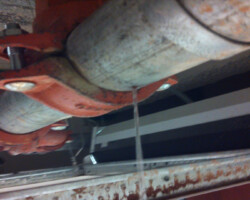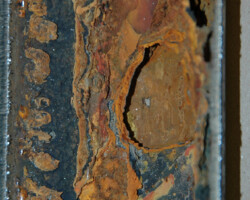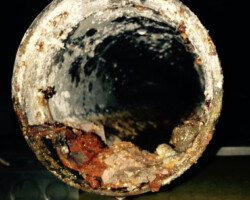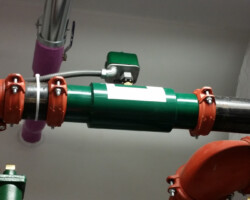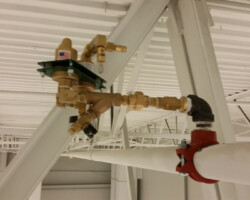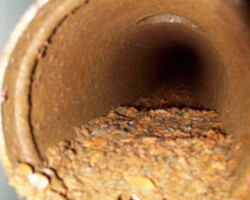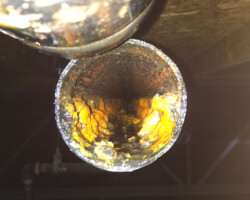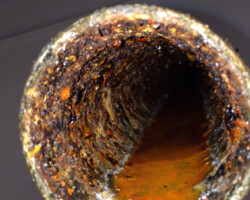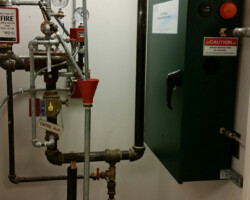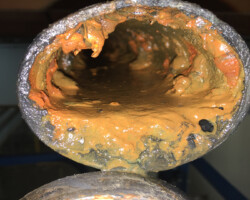The Benefits of Regular Fire Safety Inspections
Safety Measures to Avoid Fire in Factories and Warehouses
November 15, 2024Imagine a world where a single spark can instantly ignite a blazing inferno, devouring everything in its path. Now, envision a shield, a protective barrier that safeguards you from the devastating forces of fire.
Fire safety inspections act as this shield, the unsung heroes ensuring your safety and the preservation of your property. But what exactly are the benefits of these inspections? How do they contribute to the prevention of fire-related disasters? In this discussion, we will explore the numerous advantages these inspections offer, including fire extinguisher inspection, fire sprinkler inspection, fire sprinkler testing, fire alarm inspection, and fire alarm monitoring services. Prepare to gain a newfound appreciation for the vital role these inspections play in safeguarding lives and property.
Early Detection and Prevention
Early detection and prevention are crucial in ensuring fire safety inspections are effective and comprehensive. By focusing on these aspects, industrial and residential commercial fire protection services in Seattle equipment and protocols can be properly maintained and monitored, minimizing the risk of fires and ensuring the safety of individuals and property.
One of the key benefits of early detection is the ability to identify potential fire hazards before they escalate into major incidents. Regular inspections allow for the identification of faulty equipment, such as malfunctioning smoke detectors or fire extinguishers, which can then be promptly repaired or replaced. Additionally, fire safety protocols can be reviewed and updated to address any emerging risks or changes in regulations.
If you are extremely concerned about early detection, talk with Columbia Fire about VESDA (Very Early Smoke Detection Apparatus) and air sampling detection. In addition to fire sprinklers and other types of suppression systems, there are technologies which can detect fires earlier than others within moments of the inception.
Prevention plays a significant role in mitigating the likelihood of fires. By implementing fire safety measures, such as proper storage and disposal of flammable materials, regular maintenance of electrical systems, and the installation of fire-resistant materials, the risk of fire outbreaks can be significantly reduced. Early detection also makes for the identification of potential hazards that may have been overlooked, allowing for timely intervention and prevention.
Minimizing Property Damage
During fire inspections, experts thoroughly assess the property, identifying any potential fire hazards such as faulty wiring, flammable materials, or blocked fire exits. By addressing these issues promptly, property owners can minimize the risk of fire and reduce the potential for property damage.
Regular inspections also ensure that fire suppression systems, such as sprinklers and fire extinguishers, are in proper working condition. These systems play a vital role in containing and extinguishing fires, limiting the extent of property damage. Additionally, inspections help ensure that emergency evacuation plans are in place and accessible, enabling occupants to exit the property safely and swiftly during a fire emergency.
Ensuring Compliance with Safety Regulations
To bolster the efficacy of fire inspections and mitigate property damage, property owners must prioritize adherence to safety regulations. Here are three compelling reasons why upholding legal requirements and implementing fire prevention measures are of paramount importance:
- Prevention of potential hazards: Compliance with safety regulations ensures that potential fire hazards are identified and addressed promptly. Regular inspections help property owners identify any non-compliance issues and take corrective actions to mitigate fire risks. This proactive approach significantly reduces the likelihood of fire incidents and subsequent property damage.
- Protection of occupants: Adhering to safety regulations means that necessary fire prevention measures, such as proper installation and maintenance of fire alarms, extinguishers, and sprinkler systems, are in place. These measures help protect the lives of occupants by enabling early detection of fires and facilitating effective fire suppression, minimizing injuries, and potential fatalities.
- Legal and financial consequences: Failure to comply with safety regulations can result in severe legal and financial repercussions. Non-compliant properties may face fines, penalties, and even closure. Insurance coverage may also be compromised if safety regulations are not followed. By ensuring compliance, property owners not only avoid legal troubles but also maintain insurance coverage, protecting themselves from significant financial losses in the event of a fire.
Protecting Lives and Promoting Safety
Ensuring the safety of individuals and promoting a secure environment are paramount objectives of fire safety inspections. By conducting regular inspections, organizations can identify potential fire hazards and implement necessary safety measures to protect lives and promote safety.
One crucial aspect of fire safety is the implementation of fire drills. Fire drills are simulated exercises that aim to familiarize individuals with emergency evacuation procedures and ensure a swift and organized response in the event of a fire. These drills allow individuals to practice their evacuation routes, become familiar with the locations of fire exits, and understand the importance of remaining calm during an emergency. By regularly conducting fire drills, organizations can ensure that everyone is prepared and capable of responding effectively in a real emergency.
Emergency evacuation procedures are another vital component of fire safety. These procedures outline the steps individuals should take in the event of a fire, including how to raise the alarm, evacuate the building, and assemble at designated safe zones. Regular fire safety inspections help organizations identify any shortcomings in their emergency evacuation procedures and make necessary improvements to ensure the safety of all occupants.
Peace of Mind for Homeowners and Business Owners
Regular fire safety inspections offer homeowners and business owners a profound sense of peace and security. These inspections yield a multitude of benefits that contribute to creating a safe and secure environment. Here are three compelling reasons why prioritizing regular fire safety inspections brings about a genuine sense of tranquility:
- Cost-effective solution: Regular fire safety inspections help identify potential fire hazards and ensure that safety measures are in place. By addressing these issues proactively, homeowners and business owners can avoid costly damages that may result from a fire. Inspections also help identify any maintenance needs or upgrades that can prevent fire incidents in the future. Ultimately, investing in regular fire-safety inspections is a cost-effective solution that saves money in the long run.
- Professional expertise: Fire safety inspections are conducted by certified professionals who possess the necessary knowledge and expertise to identify potential fire risks. These experts thoroughly assess the premises, including electrical systems, fire alarms, sprinklers, and emergency exits. Their in-depth knowledge allows them to identify any potential fire hazards that may go unnoticed by the untrained eye. By relying on professional expertise, homeowners and business owners can rest assured that their properties are thoroughly inspected and protected against fire risks.
- Peace of mind: Knowing that your property has undergone regular fire safety inspections brings peace of mind. It instills confidence that all necessary precautions have been taken to prevent fire incidents and protect lives and assets. Regular inspections provide reassurance that fire safety is being prioritized and that the necessary measures are in place to minimize the risk of fire. This peace of mind allows homeowners and business owners to focus on their daily activities without constantly worrying about the possibility of a fire.
Frequently Asked Questions
How often should fire inspections be conducted?
You should conduct fire safety inspections regularly to ensure the safety of your premises. Regular inspections help identify potential hazards, minimize the risk of fires, and ensure compliance with safety regulations.
What are some common fire hazards that inspectors look for during inspections?
During fire safety inspections, inspectors look for common fire hazards such as faulty electrical wiring, blocked exits, flammable materials, and inadequate fire extinguishers. They ensure that buildings comply with fire safety regulations to prevent potential disasters.
Are there any specific fire safety regulations that need to be followed in residential areas?
In residential areas, it’s crucial to follow fire safety regulations to protect lives and property. Regular inspections help ensure compliance, identify potential hazards and maintain a safe environment. Remember to consider the importance of fire safety inspections.
Can homeowners and business owners perform their own fire safety inspections, or should they hire professionals?
You might be wondering if it’s better to do your own fire safety inspections or hire professionals. Consider the cost of hiring professionals versus the potential benefits of DIY inspections to make an informed decision.
What are the consequences of not complying with fire safety regulations?
If you don’t comply with fire safety regulations, there can be serious consequences. Noncompliance puts lives at risk and can lead to property damage, fines, legal actions, and even closure of your business. Fire safety regulations are crucial for everyone’s safety.


